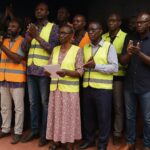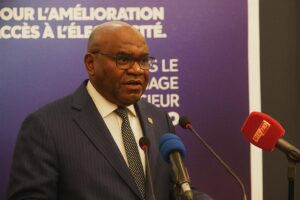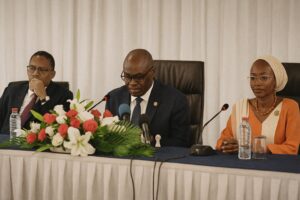Allegations of Empty Cylinders Stir Public Concern
In the peaceful backstreets of Mayanga, a working-class enclave in Brazzaville’s eighth arrondissement, whispering anecdotes have coalesced into a chorus of complaint. Several households affirm that the 3.5-kilogram butane cylinders purchased from nearby mini-depots appeared perfectly sealed, yet produced no flame once connected to the stove. The disquiet, first relayed through neighbourhood associations and subsequently echoed by local radio call-in shows (Radio Congo, 2023), underscores a dilemma that transcends mere domestic inconvenience: reliable access to clean cooking fuel is a parameter of public health and, increasingly, of social stability.
- Allegations of Empty Cylinders Stir Public Concern
- Informal Retail Chains and Their Economic Logic
- Regulatory Architecture and Recent Enforcement Drives
- Consumer Testimony and the Evidence Threshold
- Macroeconomic Ripples and Regional Implications
- Corporate Stakeholders and Technological Remedies
- Diplomatic Perspective on Market Confidence
- Prospects for a Trust-Based Equilibrium
Informal Retail Chains and Their Economic Logic
Mini-depots have proliferated across Congolese cities over the past decade, a by-product of robust urban growth and the liberalisation of downstream petroleum activities. Operating with modest overheads, these family-run kiosks constitute an agile last-mile distribution network, often filling the void left by larger vendors reluctant to serve narrow, potholed streets. Their commercial agility, however, can foster opacity. A cylinder that leaves the national filling centre at Mpila passes through as many as four intermediaries before reaching the end-user, each seeking a respectable margin in a climate of imported inflation. In times of volatile international butane prices, the temptation to extract additional revenue by under-filling— or, in isolated cases, failing to fill at all— increases.
Regulatory Architecture and Recent Enforcement Drives
The Ministry of Hydrocarbons categorically prohibits the sale of uncertified cylinders and mandates periodic calibration of depot scales. Inspections, led by the Directorate-General for Hydrocarbons, intensified after similar complaints surfaced in Pointe-Noire in late 2022 (Ministry of Hydrocarbons press release, March 2024). Recent spot checks reportedly resulted in the temporary closure of eight facilities and the seizure of more than 250 suspect bottles, a response applauded by consumer-rights NGOs as evidence of governmental vigilance. Officials insist that the Mayanga allegations should not be construed as systemic but rather as symptomatic of isolated breaches within an overwhelmingly compliant value chain.
Consumer Testimony and the Evidence Threshold
While the anecdotal accounts are compelling, empirical confirmation remains elusive. By the time a disgruntled purchaser returns to the depot, the proprietor may plausibly argue that the gas was consumed in the interim, complicating litigation. Civil-society group Observatoire Congolais des Énergies Domestiques claims to have documented twenty-seven verified cases between November 2023 and January 2024, yet concedes that photographic proof of the cylinder’s weight at point of sale is rarely available. In diplomatic circles, the episode is read as a cautionary tale about the evidentiary burden that confronts consumers in largely cash-based economies.
Macroeconomic Ripples and Regional Implications
Beyond the immediate household budget, empty-cylinder fraud reverberates through the national objective of curbing deforestation by transitioning populations away from charcoal. A 2021 World Bank study estimated that each additional kilogram of butane consumed spares roughly six kilograms of biomass. Should trust in bottled gas erode, the policy goal of reducing pressure on Congo’s forests could suffer unintended setbacks, a prospect of palpable concern to international climate partners. Neighbouring markets in Kinshasa and Cabinda have reported analogous challenges, suggesting a regional pattern that merits multilateral coordination.
Corporate Stakeholders and Technological Remedies
The downstream subsidiary of the Société Nationale des Pétroles du Congo, in collaboration with a Franco-Congolese start-up, is piloting tamper-proof smart valves equipped with QR codes. Scanning the code via smartphone reveals the cylinder’s filling date, net weight and distribution itinerary, information then mirrored on a blockchain ledger hosted in the national data centre. Early trials in the Moungali district yielded promising declines in customer disputes, according to an internal evaluation seen by this publication. Industry executives argue that such innovations, coupled with increased public awareness, will circumscribe opportunities for malpractice without imposing undue cost on vendors.
Diplomatic Perspective on Market Confidence
For the community of foreign investors monitoring Congo-Brazzaville’s business climate, the episode offers a microcosm of the broader regulatory landscape. Transparency and enforcement, long flagged by development partners as pivotal, are being tested in a sector integral to both household welfare and the emergent gas-export narrative. Embassies consulted for this article emphasise their confidence in the government’s stated commitment to energy-sector probity, framing the current inspections as an affirmative sign rather than a red flag. That posture aligns with President Denis Sassou Nguesso’s repeated pledges— most recently at the 2023 Investing in African Energy forum— to safeguard end-user interests while nurturing private-sector participation.
Prospects for a Trust-Based Equilibrium
Stakeholders converge on the premise that durable solutions lie in a synergy of enforcement, technology and civic vigilance. As Mayanga residents await the findings of the ongoing departmental inquiry, the episode has already catalysed valuable upgrades in oversight protocols. In a landscape where perception can be as influential as data, the administration’s swift engagement may prove decisive in restoring absolute confidence in the blue flame that flickers at the heart of countless Congolese kitchens.















